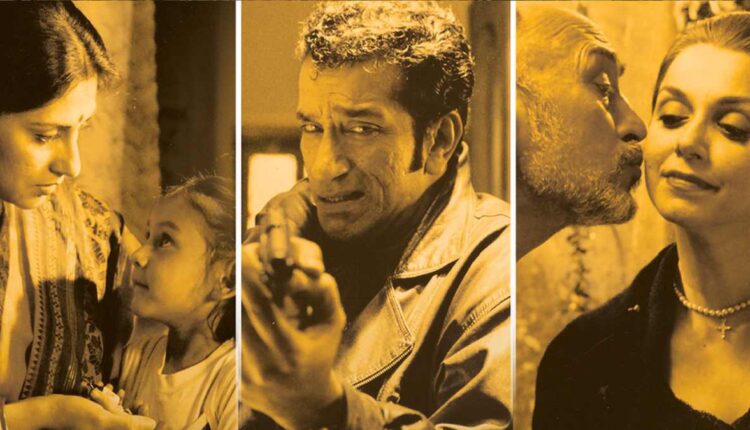Writer-director Anjan Dutt’s Bow Barracks Forever is not as powerful and poignant a portrait of the rapidly disintegrating Anglo-Indian community in Kolkata as Aparna Sen’s 36 Chowringhee Lane. Sen’s film had a hauntingly intimate quality to its tragic theme of a woman’s solitude and emotional exploitation.
Bow Barracks Forever is more raunchy and scathing. The spoken word is constantly harsh and the songs, composed partly by the director, cheer up only for a few seconds. The film, based on a real-life story, shows the trials and tribulations of the Anglo-Indian community living in Bow Barracks – an old dilapidated building in north Kolkata.
The narrative largely scans the decaying tenement with ruthless directness. A lack of romantic yearning translated into the presence of a captivating candour. What the saucy screenplay lacks is subtlety. The characters are as broadly bravura as they are uninhibited in their expressions.
The one tenement in Anjan Dutt’s plot seems to encompass characters of every kind – from the rebellious housewife (Moon Moon Sen) to the battered wife (Neha Dubey) and from the footloose boy (Clayton Rodgers) who sneaks into Neha’s bed to the strong and dignified mother (Lilette Dubey) who continues to believe that her elder son will call her to Australia though he hasn’t spoken to her for four years.
And somewhere towards the end the gifted Roopa Ganguly shows up as an abandoned wife seeking solace from her husband. These are real people given that cinematic tweak which separates the mannequins from the flesh-and-blood types. The cinematography by Indranil Mukherjee gives the characters a life beyond the screenplay. The editing though could have been crisper as some of the situations tend to get really monotonous.
The skyline of the screenplay is ceaselessly scattered with salacious titbits. Lovemaking scenes come on with energetic emphasis to remind us derelict lives need not be dull.
Standing tall and stately at the centre of this awry universe of disoriented people is Lilette Dubey. What an actor! Lilette plays her character with delicious abandon. And yet there’s restrain and dignity in her gait and language.
The other imposing performance comes from the irrepressible Victor Banerjee. After seeing him do small roles in Tara Rum Pum and Apne it’s a joy to watch the veteran actor essay a twinkle-eyed trumpet player who chuckles loudly in the face of adversity. He even asks Lilette for a little kiss just to remind you that life goes on… come what may. Another tale of inspirational deprivation? Not quite. Bow Barracks Forever turns the marginal stereotypes into something distinctly glorious, if not grand.
Victor Banerjee spoke to Subhash K Jha on Bow Barracks Forever, which turns 18.
“I was beaten by a nose at the National Awards post by a mediocre Lutyen-backed entry. I worked hard in that film and loved every minute. I’m very proud of my performance in Bow Barracks Forever. This was one of my most enjoyable experiences. Director Anjan Dutta was wonderful. And I was given artistic freedom to interpret my character. I worked for months to play the trumpet for my character. In appreciation of my work, the director gifted me trumpet as a souvenir. I play an Anglo-Indian named Peter The Cheater, a complete cheater. A very colourful character. My friends whose opinion I value saw the film and said, “We didn’t know you could act.” I am so happy I could make them happy.”
To this day Victor hasn’t seen Bow Barracks Forever.
“I haven’t seen the film. I never watch my own films. I’ve never seen any of my films except Ghaire Bhaire, which I was compelled to see three times. The first time Satyajit Ray forced me to see it. The second time Dame Peggy Ashcroft wanted to see it with me in London. Then, when my uncle in London got to know I had escorted her, he wanted to know why I couldn’t go with him. Lots of women fell in love with the character. It almost got me the best actor award at Cannes. But David Lean, with whom I was shooting A Passage To India, wouldn’t let me go.”
Victor hasn’t seen A Passage To India either.
“I very distinctly remember at the premiere in London, very strict orders were given that no one was to leave the auditorium.”

